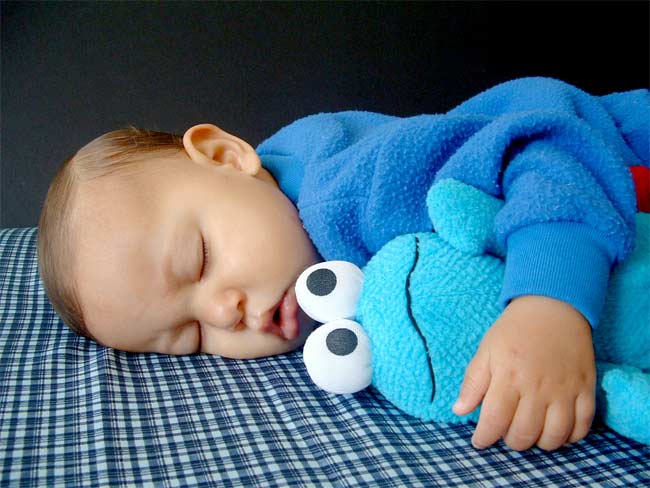Should Babies Be Put on a Sleep Schedule?

We had only one house rule when my daughter was born — sleep when the baby sleeps. After watching countless sleep-deprived new parents, we figured that the only way to manage the unpredictability of an infant's sleep pattern was to follow her lead. This meant we napped a lot during the day, and woke up several times a night, but in the end we all seemed to get enough sleep. And we managed to avoid the glazed over eyes of the sleep deprived most of the time. As one friend commented on our parenting style, "You just don’t look tired enough." Our rather laissez-faire approach to infant sleep was, of course, radical compared to all the other new parents who were putting their babies on sleep schedules and cleaning the house rather than napping. Their approach, based on a belief that babies "should" be "trained" to sleep in long bouts, alone, and mostly at night, is the accepted Western norm. But as an anthropologist who has looked at parenting from an evolutionary view and across cultures, it made no sense to me at all. Human babies, I knew, are physically and emotionally entwined with their caretakers, so you might as well sleep together or there will be hell to pay. Recent research on infant sleep and depressed mothers by Roseanne Armitage of the University of Michigan Medical School underscores the strength of that adult-baby entrainment. Armitage and colleagues asked mothers who were depressed during pregnancy, as well as mothers who had a newborn and were not depressed, to wear a wristwatch device called an actigraph which measured sleep, rest and activity. The researchers also put tiny versions of the actigraph on the mothers' 2-week-old babies. Turns out, the babies with happy mothers often came with an inborn sense of circadian rhythm, meaning they innately distinguished between day and night, and soon adjusted the major portion of activity accordingly. But the babies of depressed mothers had no such rhythm, and their sleep and activity patterns were all over the place all the way to the end of the study eight months later. Although the researchers were adamant that all babies should be put on a sleep schedule to "fix" any "irregularities" in circadian rhythms caused by maternal mood disorders, that suggestion misses the mark. Human infants are born neurologically unfinished and therefore designed to be constantly attached to an adult who is attuned to their needs. The problem with depressed mothers is not so much that their babies have sleep "problems" but that the mothers, day and night, are emotionally and physically affecting their infants in ways they may not even notice. Responding to the endless needs of a helpless baby in a culture where most of us have no experience with kids can be a shock to even the most psychologically balanced person. Just imagine being depressed about the baby, or something else, and then being faced with this screaming infant who won’t sleep when she's "supposed" to. And then read that one "should" put that baby in a crib, alone, and let her cry it out until she sticks to a sleep schedule, by gum. It would make any parents near the edge fall over into depression. Surely there's a more humane approach to helping sad mothers and fussy babies that addresses both their needs, Oh, yeah, I've got it: Sleep when the baby sleeps and you'll both get enough sleep.
- Video – Why Baby Dolphins Don't Sleep
- 10 Things You Didn't Know About You
- 5 Things You Must Know About Sleep
Meredith F. Small is an anthropologist at Cornell University. She is also the author of "Our Babies, Ourselves; How Biology and Culture Shape the Way We Parent" (link) and "The Culture of Our Discontent; Beyond the Medical Model of Mental Illness" (link).
Get the world’s most fascinating discoveries delivered straight to your inbox.


